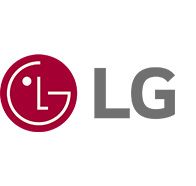-
Convergence and Collaborations
Vehicle trends are accelerating toward an inflection point due to the rapid, on-going evolution of self-driving technology. It’s a significant shift that’s leading to a complete overhaul of vehicle software architecture. In the past, the focus was primarily on intra-domain integration, where different systems within a specific domain, such as infotainment, ADAS, connectivity and powertrain, were integrated. However, in the era of SDVs, there is a shift towards inter-domain integration. This means that various domains need to be seamlessly integrated to enable the functionalities required for autonomous driving.
The traditional OEM and tier-1 supplier’s roles and obligations will also alter significantly in the software-defined vehicle (SDV) age, particularly in terms of software governance. These changes will have a crucial role in shaping business models that will allow auto parts suppliers to secure capabilities in the mobility industry and generate consistent revenues throughout the entire vehicle lifecycle. The development of SDVs requires collaboration between tier-1 companies, OEMs and tech companies. Tier-1 companies need to be able to work effectively with other players in the automotive ecosystem to bring SDVs to market. Therefore, in the future, players within the industry must actively engage in strategic collaborations, pursuing limitless cooperation rather than endless competition.
-
Customer Experience and Consumer Insights
The future of infotainment solutions revolves around companies’ ability to deliver a seamless in-vehicle experience to users. Achieving this goal requires a comprehensive understanding of the end-user, or driver, from their emotional and physical state to their habits and preferences. Detecting and interpreting contextual and technical factors external to the user, including the vehicle’s operational status, road conditions, and the surrounding environment, are also a major part of the equation. Additionally, embracing software and data-driven vehicle development and maintenance is crucial to ensuring the swift delivery of software updates and feature enhancements via advanced vehicle communications technology.
To prepare for these imminent changes and maintain a competitive edge, the LG Electronics (LG) is proactively leveraging its extensive consumer electronics/IT expertise and customer insights. Taking a strategic approach, the company aims to create integrated solutions rooted in In-Vehicle Infotainment (IVI) systems, telematics, Advanced Driver Assistance Systems (ADAS), and mobility-driven content and software services.
-
Better Future Mobility
Driving forward to a better future of mobility, LG is focused on strengthening its offerings and expertise in four key areas: software solutions, hardware solutions, engineering services, and cloud services. As a trusted business partner, LG is committed to providing comprehensive mobility solutions to meet the evolving needs of the SDV era.
In September, LG will unveil their vision for future mobility at IAA MOBILITY 2023 in Munich, Germany.
-
# # #



![[IAA Mobility 2023] LG Embracing Changes in the SDV Era1](/global/mobility/images/more-stories/230821/more-stories_230821_hero_d.png)
![[IAA Mobility 2023] LG Embracing Changes in the SDV Era2](/global/mobility/images/more-stories/230821/more-stories_230821_hero_mo.png)